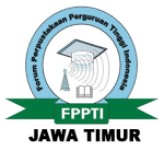Training Of Information Technology In West Java Sumedang-Regional Library As An Effort On Digital Literacy Education
Unduhan
Background of the study: The Internet has become part of society's daily life. But the phenomenon shows that not all people are Able to use information technology and the Internet efficiently, and the information disseminated through the internet is not entirely quality information. Therefore, Internet users need digital literacy skills, that is the ability to use information technology efficiently and the ability to find, Evaluate, use, make information, and use it wisely, and lawfully. The problem is who should be held responsible to digital literacy education for the community. Public libraries can play a role in the digital literacy education for the community.
Purpose: This study aims to find out how the management of ICT education in the Regional Public Library (PUSDA) of Sumedang Regency, West Java, as an effort for digital literacy education community.
Method: The research method used is a qualitative method with descriptive analysis, and the data collection techniques with observation, interviews, focus group discussions, and literature study.
Findings: The result shows the subject taught in ICT with the relevant training on participants' needs. The participants are students and jobless. Most of of participants did not have Reviews their own computer, they were very happy to take part in the ICT training in the library because it was free. Teachers are library staff and outside personnel assistance. Computer used are owned by the library and donations from industry. The way of teaching was easy to understand and the participants could practice using computers and search the internet. The PUSDA staff organized the training with enthusiasm.
Conclusion: There are some aspects that are already owned by the public library which will support the implementation of digital literacy education effectively and efficiently. Among them is the library already has computer facilities, has a staff of professionals, and already has access to sources of digital information online
Unduhan
Gilster, P. 1997. Digital literacy. New York: Wiley.
Gorman, G.E. and Clayton, P. 1997. Qualitative Research for The Information Proffesional: A Practical Handbook. London: Libary Association Publishing.
Jogiyanto, H.M., 2005, Analisa dan Desain Sistem Informasi: PendekatanTerstruktur Teori dan Praktik Aplikasi Bisnis. Yogyakarta: ANDI
Komariah, N., Yusup, P., Saepudin, E. (2017). The Attitude of Users towards a Micro Library "Gasibu”: An Extended Service of Public Library in Sports Area. Proceeding of ICCLAS. New York: Atlantis Press.
Nasrullah, R. 2017. Materi Pendukung Literasi Digital. Jakarta: Kementerian Pendidikan Dan Kebudayaan.
Pikiran Rakyat Siap Menjawab Tantangan. (2019, Maret 26). Harian Umum Pikiran Rakyat, p. 1.
Republik Indonesia. (2007). Undang-Undang Nomor 43 Tahun 2007 tentang Perpustakaan.
Sutarno, NS. 2006. Perpustakaan Dan Masyarakat. Jakarta: Sagung Seto.
Record and Library Journal by Unair is licensed under a Creative Commons Attribution-ShareAlike 4.0 International License.
1. The journal allows the author to hold the copyright of the article without restrictions.
2. The journal allows the author(s) to retain publishing rights without restrictions
3. The legal formal aspect of journal publication accessibility refers to Creative Commons Attribution Share-Alike (CC BY-SA).
4. The Creative Commons Attribution Share-Alike (CC BY-SA) license allows re-distribution and re-use of a licensed work on the conditions that the creator is appropriately credited and that any derivative work is made available under "the same, similar or a compatible license”. Other than the conditions mentioned above, the editorial board is not responsible for copyright violation.


 57201398420
57201398420

























